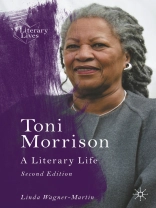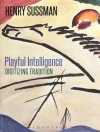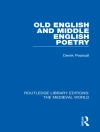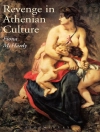A reading of the oeuvre of Toni Morrison—fiction, non-fiction, and other—drawing extensively from her many interviews as well as her primary texts, Toni Morrison: A Literary Life, second edition provides an overview of Morrison’s intellectual growth as an artist. Linda Wagner-Martin aligns Morrison’s novels with the works of Virginia Woolf and William Faulkner, assessing her works as among the most innovative, and most significant, worldwide, of the past fifty plus years. The revised edition includes new discussion of God Help the Child, The Origin of Others, and The Source of Self-Regard. These additions present and intensify scholarship on Morrison’s major literary contributions, but also trace her significant role as a public intellectual, bringing to light the consistency of Morrison’s aesthetic and political visions.
Tabela de Conteúdo
Introduction: Morrison’s Early Years.- Song of Solomon: One Beginning of Morrison’s Career.- Tar Baby and Other Folktales.- Beloved, Beloved, Beloved.- Jazz and Morrison’s Trilogy: New York in the 1920s.- Morrison as Public Intellectual.-The Nobel Prize in Literature and Morrison’s Trilogy.- Morrison and the Twenty-first Century: Love.- Morrison and Various Mercies.- Morrison and the Definitions of Home.- God Help the Child.- The Origin of Others and The Source of Self-Regard.- Coda.
Sobre o autor
Linda Wagner-Martin is Frank Borden Hanes Professor of English and Comparative Literature Emerita at University of North Carolina-Chapel Hill, USA. She has written and edited more than eighty books, has won a number of teaching awards, and such grants as the Guggenheim, the Senior National Endowment for the Humanities, ACLS, Ford, and Rockefeller—and been a fellow at Bellagio, Bogliasco, and the Radcliffe Institute. She was awarded the Hubbell Medal for Lifetime Service to American Literature. Her book The Life of the Author: Maya Angelou (2021) has been nominated for the Plutarch Prize. In the Palgrave Macmillan Literary Lives series, she has published works on Emily Dickinson (2013), Sylvia Plath (2003), John Steinbeck (2017), Walt Whitman (2021), and Ernest Hemingway (second edition, 2022).












